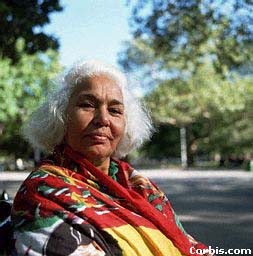IRANIAN WOMEN TO PUT THEIR RIGHTS FIRST?
HRW pleads: Iran: Allow Women's March for Equality They plan to march and we can only wish them good luck.
The issue of women's rights is not a novel notion in Iran as these early feminist cartoons demonstrate. Ironically, the Shah and his family were avid and successful advocates of women rights during the sixties and seventies.
In the late 1960s, women entered the diplomatic corps, the judiciary and police force, and the revolutionary service corps (education, health and development)[10]: in 1968, Farrokhroo Parsa became Minister of Education - she was the first women to hold a cabinet position; in 1969 the judiciary was opened to women and five female judges were appointed, including future Nobel prize winner Shirin Ebadi. Women were elected to town, city and county councils[11]. . . .One of the major victories of the women’s movement and the WOI was the Family Protection Law of 1975. It granted women’s equal rights in marriage and divorce, enhanced women’s rights in child custody, increased the minimum age of marriage to 18 for women and 20 for men, and practically eliminated polygamy[15].
Abortion was also made legal without arousing much public attention, by removing the penalty for performing the operation embodied in a law dealing with medical malpractice[16] . All labor laws and regulations were revised to eliminate sex discrimination and incorporate equal pay for equal work. Women were encouraged to run for political office.
By 1978 almost 40% of girls 6 and above were literate; over 12 000 literacy corps women were teaching in villages; 33% of university students were women, and more women than men took the entrance exam for the school of medicine. 333 women were elected to local councils, 22 women were elected to parliament, and 2 served in the Senate. There were one cabinet minister (for women’s affairs), 3 sub-cabinet under-secretaries, one governor, an ambassador, and five women mayors[17].
Iran had also established itself as playing a leading role for women’s rights among developing countries, introducing ideas and funds for the UN Regional Center for Research and Development for Asia and the Pacific, and the International Center for Research on Women[17].
Unfortunately, none of these achievement earned them the loyalty of Iranian women. Instead, Iranian women played an important role in the overthrow of the Shah. In so doing they ignored the dangers inherent in Islamist ideology and placed leftist anti Americanism first.
I wish I could be sure they've learned their lesson. But listening to Dr. Nawal el Saadawi, an elderly Egyptian feminist's performance on "This week," it quickly became obvious that they have not:
AMANPOUR: Well, Nawal, here we are in your country. It has now got a revolution in place. A military committee is still running it. How are women's rights going to be enshrined in Egypt? Not even on the committee to write the constitution.EL SAADAWI: I look at women's rights as global and local. And we cannot be liberated in Egypt in a country that is not liberated. Our problem is colonialism. I am here in New York, in Washington, and I want to speak to you, Americans, and the government. It's the problem of colonialism.
AMANPOUR: What do you mean by that?
EL SAADAWI: I mean, that, you know, if we are independent, if we're producing our food, then we will be OK. Now 50 percent of the people in Egypt earn under $2 a day because of American neo- colonialism (ph). You see. So women cannot be liberated in a country not liberated. You see?
In other words, if Egyptian women are mistreated, it is Washington and Wall street's fault. It is certainly not the fault of the Muslim Brotherhood. The hounding of Gaza women by their Hamas rulers has clearly taught the lady nothing:
AMANPOUR: And Nawal, you have been doing this for decades. You have seen in your region how -- just even in Egypt, let's talk about the Muslim Brotherhood. Do you think the Muslim Brotherhood it is an enemy of women in Egypt? And an enemy of real democracy?EL SAADAWI: We have to look at this problem of religious fundamentalism it's a universal problem.
AMANPOUR: But particularly in Egypt with the Muslim Brotherhood, do you think that they will allow...
EL SAADAWI: No.
AMANPOUR: Women to have full participation?
EL SAADAWI: I'm not afraid. They ask me, are you afraid of Muslim brothers? No. I am afraid of local dictators, you know, the one that will come after Mubarak and global dictators -- disunity.
AMANPOUR: Well, let me ask you to follow that.
EL SAADAWI: I didn't finish my comment. Because we are always concentrating on local dictators who oppress women. We are oppressed by both -- external powers. I am afraid of external powers, that's the point -- it's related to my immigration (ph).
Clearly, many feminists never learn or do not really care. Let's hope enough Iranian women will not be again in their number. Let's hope given another chance they will put women's rights first.
And just in case you missed it U.N. Hypocrisy On Full Display
Only three days ago, the U.N. General Assembly voted to suspend Libya’s membership on the U.N. Human Rights Council in a desperate bid to save the Council’s tattered reputation and itself.

